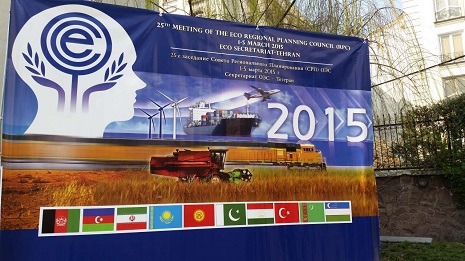He said that the presentation of the project took place within the framework of the 25th session of the Secretariat of the Regional Planning Council of ECO member countries March 1-5 in Tehran.
The meeting was attended by representatives of ministries of Azerbaijan, Turkey, Pakistan, Tajikistan, Turkmenistan, Uzbekistan, Kazakhstan, Iran, Afghanistan and Kyrgyzstan.
“TASIM contacts with countries that are geographically close to its route, which is of specific interest to them in terms of the use of optic backbone resources in the long term,” Hasanov said. “The idea of presenting the project to ECO member countries, which have expressed great interest in participating in it, was aimed so that they would get acquainted with the work conducted in terms of its implementation.”
TASIM project envisages the creation of a major transit line from Frankfurt to Hong Kong. The network, which will link the largest information exchange centers in Europe and Asia, will run through China, Kazakhstan, Azerbaijan, Georgia and Turkey to Germany.
A second alternative northern transit line is planned to run through Russia, Ukraine and Poland.
Laying the Caspian segment of the cable line is an integral part of the TASIM project, negotiations are underway with Kazakhstan on this issue.
The TASIM project includes such countries as Russia (RosTelecom), Kazakhstan (KazTransCom), Turkey (TurkTelecom), China (China Telecom), and Azerbaijan (represented by the Center for International Relations and Calculations of the Ministry of Communications and High Technologies).
The project cost is estimated at $100 million, and after the coordinationof a number of aspects it can be adjusted, according to preliminary estimates. Investments will be distributed equally between the project participants. Construction is planned for 2016.
The project aims at reducing poverty and accelerating the economic growth. It can also play a leading role in the region`s development.
The TASIM project is designed to connect 20 countries, and its realization will help to address the information gap between Western Europe and the Pacific Basin.
More about:
















































